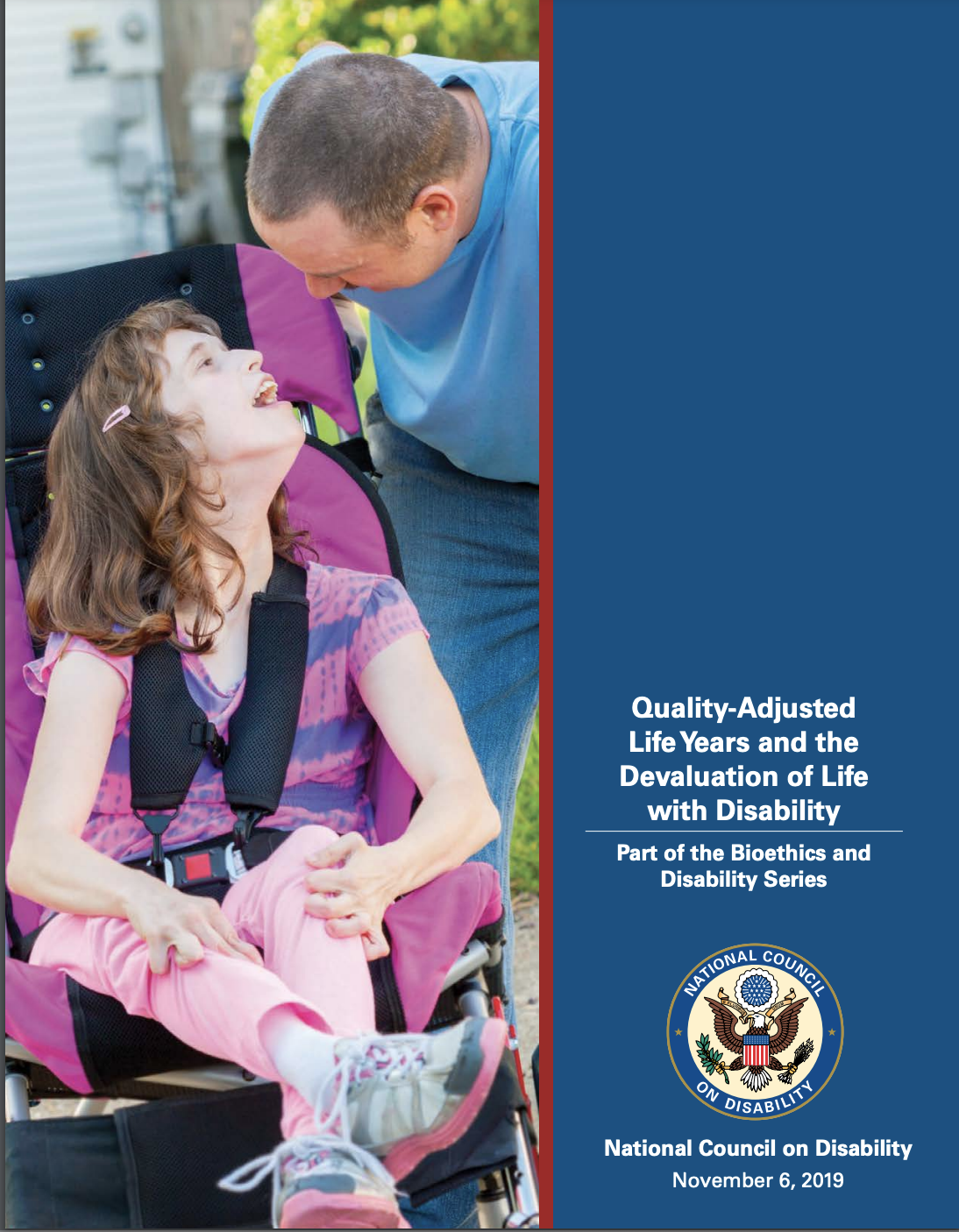Quality-Adjusted Life Years and the Devaluation of Life with a Disability

BACKGROUND AND SCOPE:
Despite the growing understanding that disability is a normal part of the human experience, the lives of persons with disabilities continue to be devalued in medical decision-making. Negative biases and inaccurate assumptions about the quality of life of a person with a disability are pervasive in U.S. society and can result in the devaluation and disparate treatment of people with disabilities, and in the medical context, these biases can have serious and even deadly consequences. In this series of reports on bioethics, the National Council on Disability will explore how people with disabilities are impacted by biases and assumptions in some of the most critical healthcare issues we face, including:
- Quality-adjusted life years (QALYs) — QALYs are a number that is used to represent the degree to which a drug or treatment extends and improves quality of life; insurance programs including Medicaid are increasingly interested in using QALYs to determine the value of treatments even though stakeholders fear they undervalue treatment that extend or improve the lives of people with disabilities. This report examines how the use of QALYs impacts people with disabilities and their access to care.

